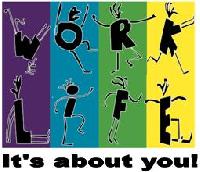
Eating right can be a challenge in general but combine a busy work schedule and other personal life commitments and it can become nearly impossible. Here are some easy to follow tips to eat right and be healthier from Dr. Jana Klauer, nutritionist and author of "The Park Avenue Nutritionist's Plan”.
- Avoid Energy Lows
- When we are on the go and need energy we often rely on quick fixes such as coffee, soda or candy. These may provide temporary relief but they often result in a crash that can leave you more tired later on. These products contain processed sugars that cause a spike in blood sugar, followed by a sugar low that results in fatigue and hunger.
- Instead of turning to products high in caffeine and processed sugar, turn to health foods that provide more lasting energy such as protein shakes, red apples, and low-fat cheeses.
- If you must have caffeine, a healthier alternative is green tea.
- Breakfast, Lunch, and Dinner
- It's easy to skip a meal when life gets hectic and stressful, but it is important to eat three meals and have nutrients to keep you going through the day. Here are some suggestions from Dr. Klauer:
- Breakfast: Hard-boiled eggs, clementines, skim-milk latte
- Lunch: Turkey chili in a thermos, high-fiber bread
- Dinner: Buffalo steak, roasted sweet potato, arugula salad with tomato, purple onion, and vinaigrette
- Look at the Labels
- The more educated Americans become about nutrition, the more savvy food marketers won’t be able to trick us with healthy-sounding slogans such as "Only 100 calories!" It’s important to look beyond the slogan at the real nutritional information on the back of the package. Here are some ways to outsmart misleading food descriptions:
- Trans-fat free: If a food has less than 0.5 grams of trans-fat, the manufacturer can list it as trans-fat free. You may think you’re eating healthy and really be eating 3 or 4 snacks, each with .5 grams of trans-fat. Look for products that have hydrogenated or partially hydrogenated oils; these make up trans-fats.
- Multi-grain: Multi grain is not the same as whole grain. Whole-grain foods contain the most nutritious elements.
- Only 100 calories: 100 calorie packages are often just the same snack in smaller portions. This does not mean they are more nutritious.
- Organic: Just because a food is organic doesn't necessarily mean it's healthy.
This information was provided by web MD. For more information please visit: http://www.wholeliving.com/article/nutrition-tips-for-busy-people
Don’t forget to sign up for the Lunch and Learn on Thursday May 26th, 2011 from 12:00- 1:00pm in the Peggy R. Williams Center, HR Conference Room G-52. Please call 4-8000 or e-mail benefits@ithaca.edu to RSVP.
Individuals with disabilities requiring accommodations should contact Alison Bowman in Human Resources at abowman@ithaca.edu or x4-8000. We ask that requests for accommodations be made as soon as possible.
Work/Life: We believe in the integration of work and life outside of work.